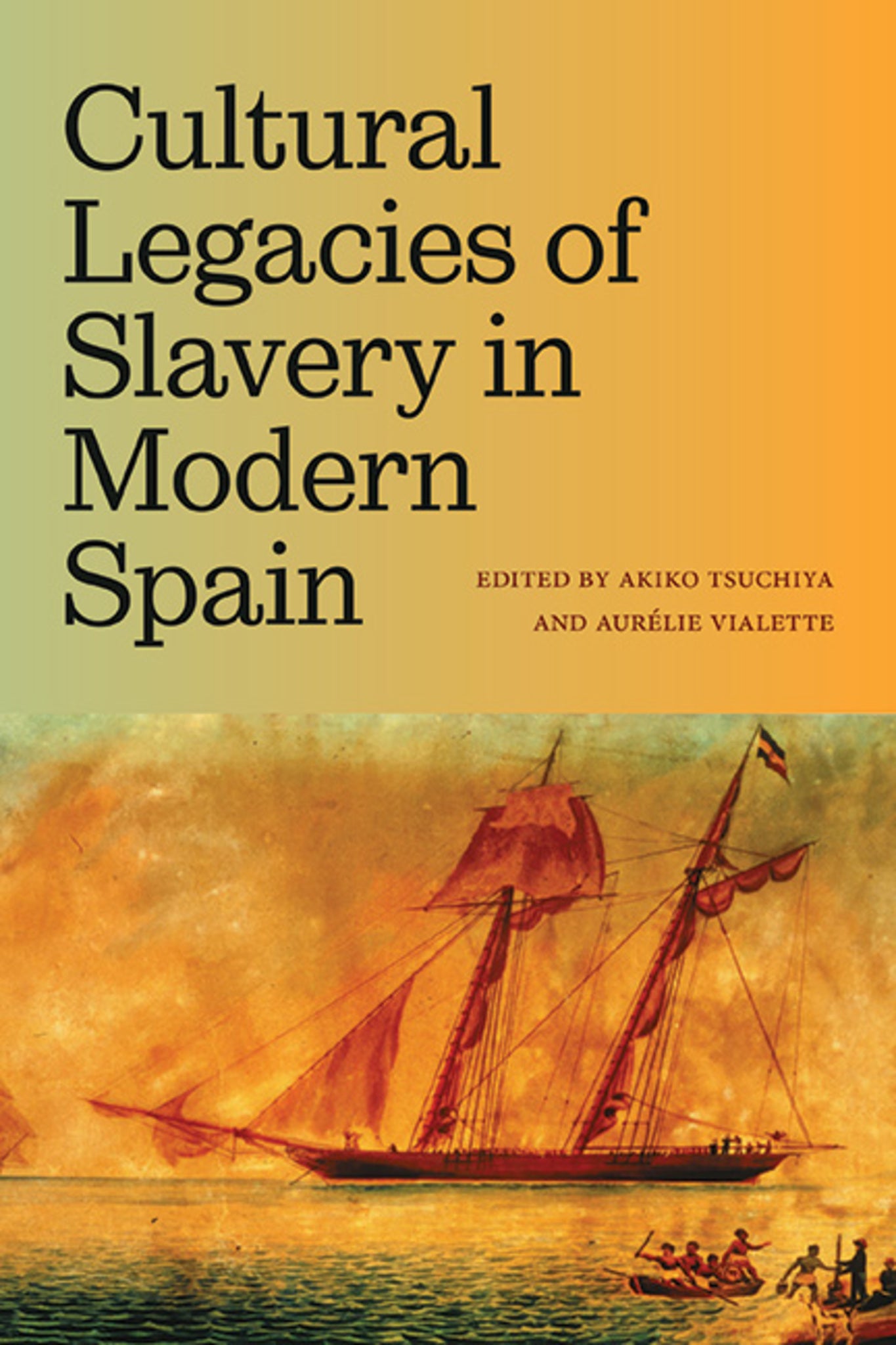We're sorry. An error has occurred
Please cancel or retry.
Cultural Legacies of Slavery in Modern Spain

Some error occured while loading the Quick View. Please close the Quick View and try reloading the page.
Couldn't load pickup availability
- Format:
-
01 January 2025

The first book-length study to address the impact of the legacies of slavery on Spanish cultural representations and institutions.
This groundbreaking volume explores how culture produced in Spain, from the nineteenth century to the present, both reflects and shapes ways of understanding the history and heritage of a nation sustained by colonialism and slavery. Akiko Tsuchiya and Aurélie Vialette bring together an outstanding group of scholars, artists, cultural producers, and activists in a range of fields-from history to literary studies, anthropology to journalism, and flamenco to film. Drawing on interdisciplinary and comparative methodologies, contributors address the legacies of slavery in the archive; in cultural memory sites; and in literature, music, and visual arts. How, they ask, do different cultural forms and institutions represent and reckon with this past and push for justice in the face of persistent racial discrimination? In its focus on collective memory and the cultural afterlives of slavery and antislavery, Cultural Legacies of Slavery in Modern Spain will appeal not only to Iberian and Latin American specialists but also readers across Afro-Hispanic, postcolonial, transatlantic, and critical race studies.


"…Cultural Legacies of Slavery in Modern Spain fills a significant gap in the academic debates on the legacies of slavery in the Spanish context, where memory policies have been scarce and fragmentary in relation to its neighboring countries. Without doubt, the work … will become a bibliographical reference for those who are studying and confronting the economic, cultural and symbolic legacies of slavery, and the ways in which they have been reflected, hidden and questioned in different cultural artefacts, both inside and outside of Spain." — HUELLAS
"Underpinned by meticulous archival sleuthing, this hard-hitting, landmark volume makes an exceptional contribution, in both depth and breadth. A number of the essays are, quite simply, stunning for their intellectual reach, historical questioning, and uncompromising engagement with our contemporary moment. Contributors not only expose the persistence of racial discrimination in our present day but also provide an indispensable foundation for re-assessing Spain's involvement in slavery in a number of locales, including London, Fernando Poo, and the Philippines. There is nothing like it on the subject." — Christine Arkinstall, author of Women on War in Spain's Long Nineteenth Century: Virtue, Patriotism, Citizenship
Acknowledgments
Introduction
Akiko Tsuchiya and Aurélie Vialette
Part 1: The Legacies of Slavery in the Archive
1. The Houseboys of Fernando Poo: Domestic Service in Spanish Colonial Africa
Benita Sampedro Vizcaya
2. Echoes of the Spanish Slave Trade in Nineteenth-Century London
Kirsty Hooper
3. Cosmetic of the Archive: An Autopsy of Slave Trader Antonio López y López and the General Tobacco Company in the Philippines
Aurélie Vialette
4. From Slavery to Anti-Black Racism: Racial Ideas from Cuba to Catalonia
Martín Rodrigo-Alharilla and Juliana Nalerio, translated by María Cristina Urruela
Part 2: Confronting the Legacies of Slavery in Cultural Memory Sites
5. Confronting the Legacies of Slavery and Colonialism in Public Spaces: Debates around Racist and Colonial Monuments in Modern Catalonia
Akiko Tsuchiya
6. Spain and the Year of Toppled Statues of Enslavers and Colonizers: The Examples of Madrid and Cádiz
Ulrike Schmieder
7. Memorialized Blackness: The Case of the Museo Atlántico
Jeffrey K. Coleman
8. Public Memory Policies in Spain: How Is the Colonial Past Addressed?
Oriol López Badell and Celeste Muñoz Martínez, interviewed by Akiko Tsuchiya and Aurélie Vialette, translated by María Cristina Urruela
Part 3 Interpreting the Legacies of Slavery in Literature, Music, and Visual Culture
9. Pedro Blanco, the Accursed Slave Driver: Literature and Historical Memory of Slavery in Spain
Gustau Nerín, translated by María Cristina Urruela
10. Searching for Cayetana's Daughter: From Goya to Carmen Posadas
Rosalía Cornejo-Parriego
11. The Urgency of a Black Iberian Thought
Tania Safura Adam, interviewed by Akiko Tsuchiya and Aurélie Vialette, translated by María Cristina Urruela
12. On Making Art from Hidden Places
Yinka Esi Graves, interviewed by Akiko Tsuchiya and Aurélie Vialette
13. Hispano-tropicalism: Flamencology and the Denial of Black Presence in Spain
Miguel Ángel Rosales, translated by María Cristina Urruela
Contributors
Index



